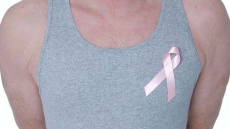TORONTO — For women with low-risk pregnancies, babies delivered at home with a midwife are at no greater risk of harm than those born in hospital with a midwife's assistance, an Ontario study has found.
The three-year study of almost 23,000 pregnancies found the risk of adverse birth outcomes was low for both planned home and hospital deliveries and differed little between the two groups, said lead researcher Eileen Hutton of the midwifery education program at McMaster University in Hamilton.
"That was true both for women having their first babies and women having their second or subsequent babies," said Hutton, noting that 35 per cent of those in the study were first-time mothers.
The study, published Monday in the Canadian Medical Association Journal, used 2006-2009 provincial health records to compare rates of stillbirth, neonatal death and adverse health conditions among newborns from almost 11,500 planned home births and an equal number of planned hospital births among women with low-risk pregnancies.
Researchers found that 75 per cent of women who planned a home birth were able to deliver at home, while 97 per cent of those who chose a hospital gave birth in that environment as planned; emergency medical services were required for eight per cent of the women delivering at home — either before or after the birth — versus about two per cent in the hospital delivery group.
The number of adverse outcomes for babies was almost identical for both groups: there were 12 stillbirths or neonatal deaths within 28 days of birth among the women who planned home deliveries, compared to 11 among those who chose to go to hospital. There were no maternal deaths.
But researchers found that women who delivered in hospital were more likely to have interventions such as pain relief, labour augmentation, assisted vaginal births or caesarean births, compared to those who delivered at home. There was also a higher rate of episiotomy among women who gave birth in hospital. An episiotomy is a surgical cut made at the opening of the vagina during childbirth to ease delivery and prevent tissues from rupturing.
Hutton suspects the differences may arise because women who intend to give birth at home may be "more intervention-adverse. For example, in terms of pain relief, they're more inclined to think 'I can manage without this and I trust my body and I'm going to do it.'
"There's also probably the fact that you are at home, and in your home environment the physiological process of labour may work better," she said.
Midwifery, regulated in Ontario since 1994, is a publicly funded service; there are about 800 to 900 licensed midwives in Ontario who provide neonatal care to pregnant women, attend their deliveries and look after mother and baby following the birth.
Midwives attend about 10 per cent of all births in the province, and about 20 per cent of those births occur at home.
"Home birth, I think, is a very contentious topic in many circles," said Hutton. "We have good reason to support women's choice of having a home birth, but often women are looking for information to validate that choice.
"So having studies like this one that can give us good information about outcomes for both the women and babies is important."




